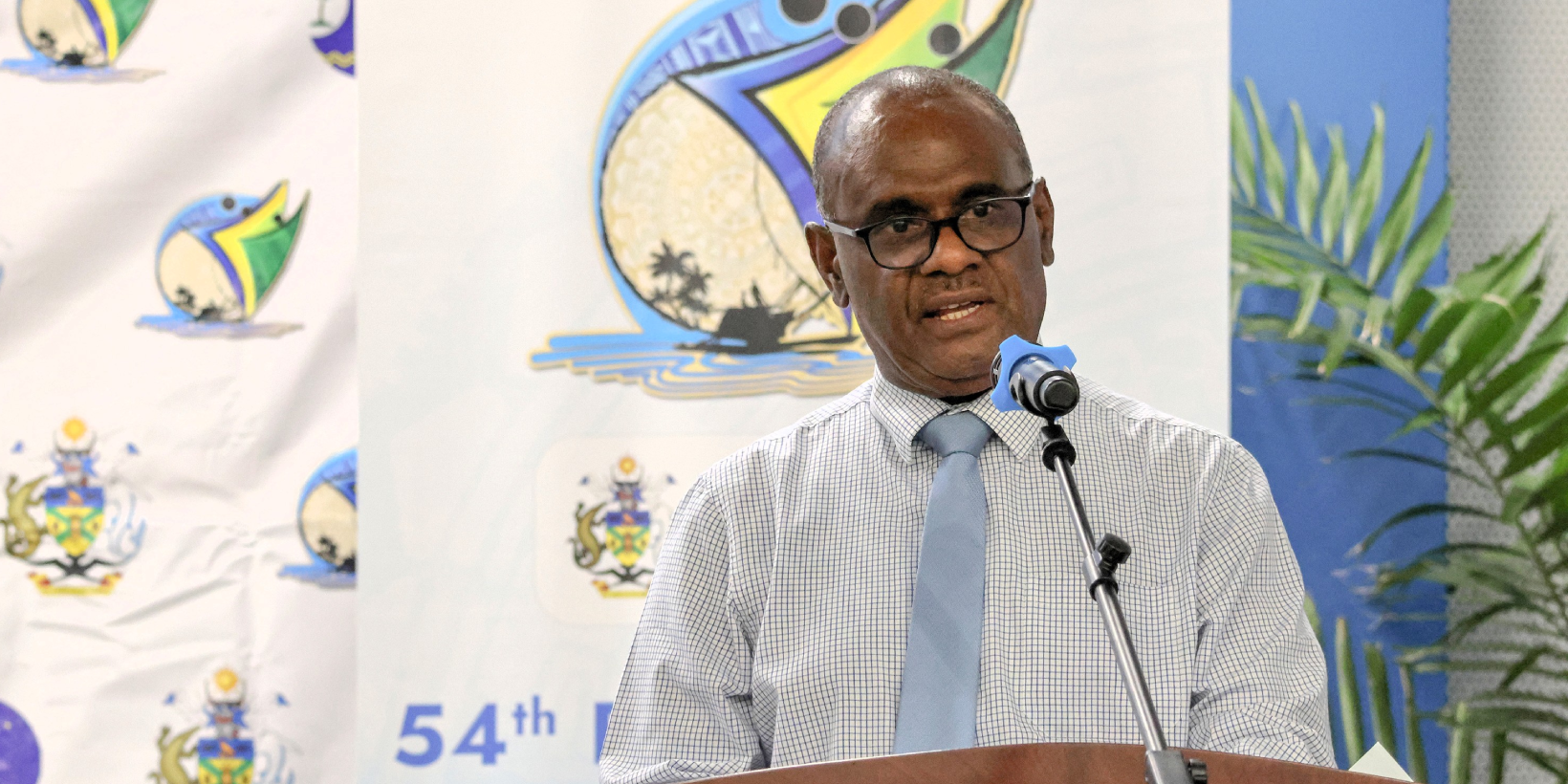Prime Minister (PM) Jeremiah Manele says Solomon Islands will continue to advocate for climate action despite comments by United States (US) President Donald Trump dismissing climate change as “the greatest con job in the world.”
Trump made the remarks during his address to the United Nations General Assembly (UNGA) on Tuesday, 23 September 2025, reiterating his skepticism toward global environmental initiatives and multilateral institutions.
According to Reuters, Trump devoted several minutes of his hour-long speech to criticize the European Union for reducing its carbon footprint, claiming it has hurt the region’s economy.
He also warned that nations investing heavily in renewable energy would see their economies suffer.
In response, Prime Minister Manele told local media on Monday that Solomon Islands stands by the scientific consensus on climate change.
“But we believe the science is very clear in terms of climate change,” he said. “Our people, our communities—especially those on low-lying atolls—have experienced its impacts for years.
“Coastal erosion, king tides—these are all realities of climate change. We respect his view, but the science is clear.”
Manele reaffirmed that Solomon Islands, as a small island developing state, would continue working with other Pacific nations to advocate for stronger climate action.
“As a small country, we’ll continue to work with other small island states to advocate for climate action so that we can address the impacts of climate change,” he said.
During last week’s Pacific Islands Ocean Conference in Honiara, members of the Pacific Islands Students Fighting Climate Change (PISFCC) were asked about Trump’s UNGA remarks.
With support from Guam-based human rights lawyer Julian Aguon and his firm Blue Ocean Law, PISFCC successfully campaigned for the International Court of Justice (ICJ) to deliver an advisory opinion in July 2025 declaring that states are legally obligated to address climate change.
A participant at the conference noted that the United States had reduced its UN budget contribution by half a billion dollars and its foreign aid budget by five billion dollars.
The U.S. Secretary of State has also reportedly said that the rules-based order under which the ICJ operates is “obsolete” and being “used as a weapon” against the United States.
The participant further claimed the U.S. had sanctioned four ICJ judges, including one from the Pacific region.
PISFCC member Solomon Yeo, who attended the UNGA, said he witnessed strong Pacific solidarity among leaders in New York on climate change.
Yeo said Trump’s remarks do not reflect the views of all Americans.
“I know there are many U.S. states that take climate change seriously and want to act on it,” he said. “But there are also those who think they’re above the rule of law, which undermines global progress.”
He added that, despite the U.S. withdrawal from the Paris Agreement, it remains bound by other international laws cited by the ICJ.
“The UN Charter, the two covenants, and the UNFCCC—all still apply to the United States. They’re obligated to provide support to Pacific Island countries in terms of technology and finance,” Yeo said. “Going against that is going against binding international law.”
Yeo recalled that the U.S. has previously disregarded international law, citing the Nicaragua case where Washington ignored an ICJ ruling.
“But the world doesn’t need to wait for the United States,” he said. “Yes, they contribute hugely to global emissions—just the U.S. military alone consumes enormous amounts of fossil fuel, more than all Pacific nations combined, including Australia and New Zealand.”
Yeo said the ICJ advisory opinion should be seen as a practical tool.
“The advisory opinion is just a clarification of international law—it’s a tool. But like any tool, if it just sits unused, it’s useless,” he said. “Citizens and governments must use it boldly, creatively, and powerfully.”
He cited an example from the whaling case in Japan, where advocacy and legal pressure led Rakuten, one of Japan’s largest companies, to divest from whaling operations.
“This shows that law can drive real change,” Yeo said. “We’ve used science to get this far. Now we have the law—how far are we willing to go to use it?”
By EDDIE OSIFELO
Solomon Star, Honiara









